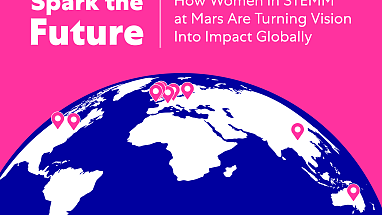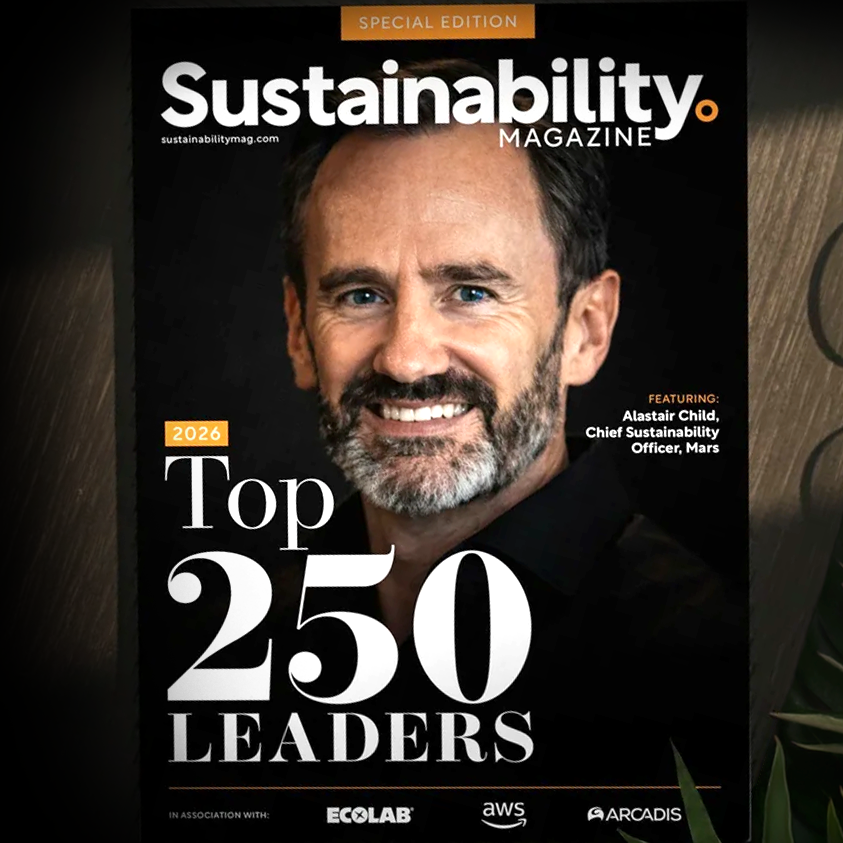This week, more than 100 United Nations member states will convene for the United Nations Environment Assembly (UNEA) in Nairobi, Kenya and negotiate a binding treaty to combat plastic pollution with a unified approach. The U.N. has said such a treaty could be “the most important environmental pact since the Paris Agreement,” setting terms for a global agreement to curb plastic pollution and form an intergovernmental negotiating committee.
At Mars, we want to contribute to a circular economy where packaging material never becomes waste, but is recycled, reused or composted. We believe that a U.N. Global Plastic Treaty will help enable the business community to succeed in that aim and are proud to join other leaders in our support for a plastics treaty.
“A global treaty on plastic pollution would help reconcile and simplify the wide variety of waste management and recycling systems around the world,” said Allison Lin, Global Vice President of Packaging Sustainability for Mars. “This consistency and efficiency across borders is urgently needed for global organizations like Mars to consistently design our packages for the optimal end-of-life solutions globally, driving circularity. We also encourage the UNEA member to approach this serious challenge with consideration for the broader environment and at-risk communities, and with a sense of urgency.”
To address the global packaging challenge in a holistic way, Mars is calling on UNEA members to provide the business community with harmonized standards, metrics and methodologies across borders; an aligned global and national targets and action plans; and support for innovation and infrastructure development. We hope to see the following items included in the negotiations:
- Investment in comprehensive infrastructure to include mechanical and advanced recycling
- Mandatory collection of all packaging types
- Increased access to recycling through harmonized collection, sorting, and waste management systems
- Improvements to the livelihoods of the informal waste collection sector
- Extended Producer Responsibility schemes that are credible, transparent, and eco-modulated to help fund infrastructure change
- Dis-incentivization of landfill and incineration
- Banning of problematic plastic types e.g., polyvinyl chloride (PVC)
- Harmonized Design for Recycling standards
While the treaty is being negotiated, we recognize that advocacy and investments at the national and local level must continue. We’re partnering with other businesses, communities and government partners to drive true systems change, including the modernization of local waste management and recycling infrastructure.
As part of our Sustainable in a Generation Plan, Mars has set an aggressive, science-based strategy to design all of our products for a circular economy – where packaging material never becomes waste, but is recycled, reused or composted. We are:
- Redesigning more than 12,000 packaging components across our diverse portfolio, making it easier for consumers to reuse or recycle our packaging. Today, almost half of our packaging portfolio is undergoing redesign or elimination.
- Investing hundreds of millions of dollars to reimagine and redesign our packaging, with hundreds of Mars Associates working to address packaging waste in our portfolio – and this team is growing.
- Embedding our packaging targets into how we measure success. Our top 300 executives now have remuneration linked to delivering against our packaging targets.
Learn more about our journey towards more Sustainable Packaging.(Opens a new window)












